Gardening
/Home & Leisure
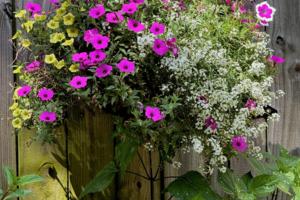
On Gardening: Gardeners need snow for the summer season
It is May and The Garden Guy is here to tell you that your garden really needs more snow for the long growing season ahead. I’m talking about one of the best flowers you can add to the design of your mixed containers. That would be Snow Princess sweet alyssum, a Lobularia hybrid.
Snow Princess and I go way back to April 2009. That was the ...Read more
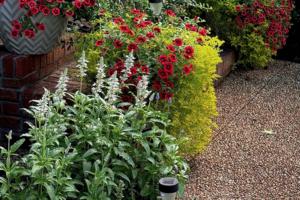
On Gardening: Unplugged White salvia to debut with beauty and perseverance
The Unplugged group of salvias is doubling in size this year with the addition of Unplugged Red and the new passion of my heart, Unplugged White. I wrote about the group a few months ago but Unplugged White deserves its own column now.
I’ve explained before that I am new to white. I know that sounds crazy coming from a guy who will try every ...Read more
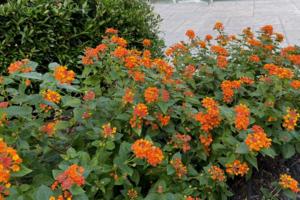
On Gardening: Everyone loves Marmalade
Winning a Perfect Score says a lot about a plant that goes through rigorous trials. But that is just what happened to one of my favorite lantanas by the name of Luscious Orange Marmalade. The location was at Oklahoma State University. Then it took the Director’s Select at Penn State and Leaders of the Pack at North Carolina State University’...Read more
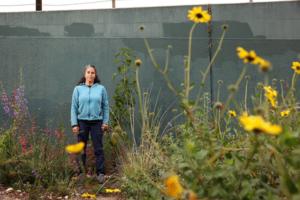
How one woman is doggedly transforming a trash patch into a fragrant habitat garden
LOS ANGELES -- Some people see trash and weeds and walk on by. Others rail against the slobs of the world, or agencies that don't do their jobs.
And some, like environmental scientist Marie Massa, roll up their sleeves and get to work.
In Massa's case, that's meant spending six to nine hours a week since early 2023 working mostly alone to ...Read more
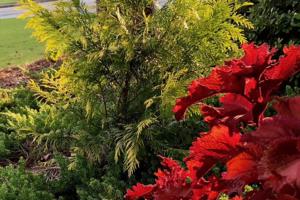
On Gardening: Fluffy western arborvitae an attention grabber in the landscape
This has been a breakout year when it comes to my prized, golden needle conifers by the name of Fluffy. Don’t get me wrong, I have loved them from the start, but they were trial-sized in the beginning, which was 5 years ago. So proper spacing meant they would look a little lonely for a while.
This year the partnerships with azaleas were ...Read more
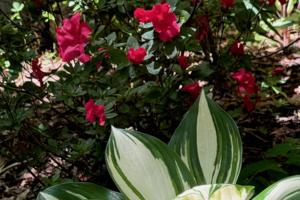
On Gardening: Creating a little hosta heaven with easy combinations
The last few weeks, I have been showing my followers on Facebook their favorite flowers used in combinations. Last week someone requested that I post combinations with hostas. Now, the hosta pros would probably choose a different hosta as a partner. While that works, I’ve been on a 6-year adventure trying special partnerships. I get more ...Read more
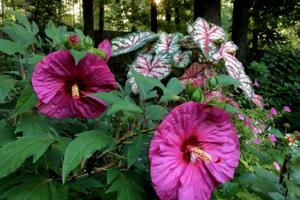
On Gardening: Creating drama in containers with Heart to Heart caladiums
If you’ve ever thought about caladiums for use in containers, you are part of a trend sweeping the country. Whether they are used as the only plant in the container or part of a mixed container design, they will create drama in containers from late spring through frost.
The past few years I have been growing a lot of Heart to Heart caladiums....Read more
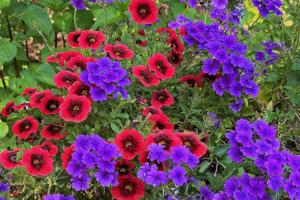
On Gardening: Punch up your Superbenas for even more sizzle
As you are planning this year’s mixed container designs, The Garden Guy wants to give you some ideas to "punch up" your verbenas. I fear your first question is, "What verbenas?" The verbena is that flower your grandparents grew in long beds at the streetside. At least mine did, in Merkel, Texas, west of Abilene.
Today verbenas are the darling...Read more
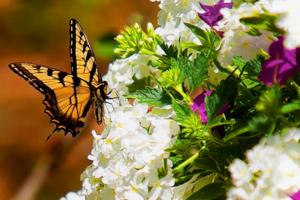
On Gardening: Superbena Whiteout makes you a verbena lover
Thirty years ago, I started trialing verbenas as part of the Mississippi Medallion award program for outstanding plants. I’ve been an avid verbena promoter and gardener ever since. I can tell you the Superbena Whiteout verbena is the best white variety I have ever grown.
Superbena Whiteout verbena has been around for about seven years, which ...Read more
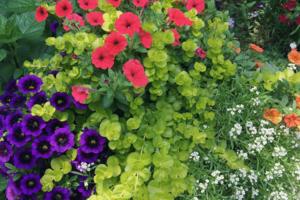
On Gardening: Three-part harmony container design for beginners
As spring approaches at jet speed and you start thinking about planting mixed containers (but perhaps with a little fear of the partnerships) keep in mind three-part harmony. It certainly works in church music, and it is perfect for gardeners too!
In the world of garden color, we call it triadic harmony. Simply put, triadic harmony is three ...Read more
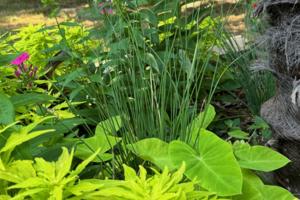
On Gardening: Royal Hawaiian Maui Gold will have you in vacation mode all summer
A few months ago I wrote a column called "Let Loose the Chartreuse." This is my go-to color to make all companions or combinations literally "POP WITH PIZZAZZ"! In that column I dabbled here and there with some of my favorites, both new and old selections.
There is one I didn’t mention as it really deserves its own column; it offers a ...Read more

Review: Spellbinding things happen when a stranger enters 'The Garden'
A garden. Is there a more potent image, carrying as it does such hefty biblical weight?
Certainly British writer Nick Newman would have been hard-pressed to keep the implications out of mind as he put fingers to keyboard to create “The Garden.” Like the one populated by Adam and Eve, two people reside in Newman’s version: sisters Evelyn (...Read more
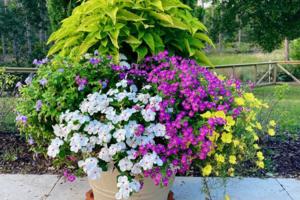
On Gardening: Safari Jamesbrittenia flowers you will love
Last year was an eye-opening year for me, when it comes to Jamesbrittenia. I’m sure you are like Microsoft Word, and underlining in red already and asking, "Who is Jamesbrittenia?" I still struggle with it too.
Jamesbrittenia is a genus with about 83 species of plants, mostly from South Africa, Sudan and Egypt. James Briton, for whom the ...Read more

How a Pasadena gardener worked through the worst January of his life to help open schools
LOS ANGELES — Juan Villegas' community was still burning on the afternoon of Jan. 8. But there was one place he had to get to: Eliot Arts Magnet Academy, his alma mater.
The Pasadena middle school had welcomed Villegas as a 12-year-old from Mexico. It's where he found his footing in a strange new country, connecting with other Latino ...Read more
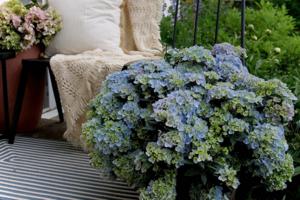
On Gardening: Fairytrail gardens awaiting you this year
Once all of the polar vortices run their course, I assure you our gardens have the possibility of becoming like a beautiful Fairytrail this year. Some of you no doubt think I just misspelled fairy tale (Microsoft Word does). I am talking about a hot new series of hydrangeas. Those of you in the know may have just gone on alert when I said ...Read more
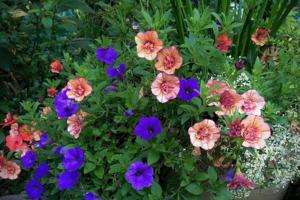
On Gardening: Double your garden pleasure with two new Superbells
Two new Superbells calibrachoas are hitting the garden centers this year and will forever change your mind on the incorporation of double flowers in your designs. That’s right: Superbells Double Vintage Coral and Double Smitten Pink will win your hearts.
Yours truly had a mental block on double calibrachoas until a few years ago when I had ...Read more






